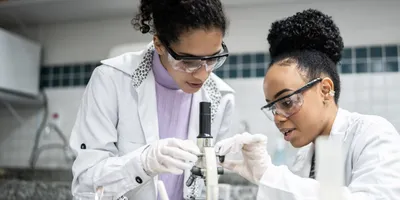HORIBA UK has launched the HORIBA Foundation UK, a new philanthropic initiative designed to expand STEM education funding, improve access to scientific training, and strengthen the pipeline of future researchers. The foundation aims to broaden participation in science, support high-impact research, and address persistent gaps in representation across the scientific workforce. For laboratory leaders, this expansion in research grants and student support may influence hiring pathways, training programs, and long-term collaboration opportunities with academic institutions.
How expanded STEM education funding supports research needs
The HORIBA Foundation UK is built on two priorities: increasing access to STEM higher education for underrepresented students and supporting emerging research aligned with major scientific challenges. Its mission reflects broader industry trends around scientific workforce diversity, a critical issue for labs managing recruitment, retention, and team development.
Simon FitzGerald, PhD, head of science and technology at HORIBA UK and director of the HORIBA Foundation UK, explained the connection between representation and research progress: “Science, technology, and engineering have the power to answer some of the most pressing questions of our time. But to truly make progress, we need to make sure we’re asking the right questions—and that means including voices from all backgrounds.”
He added that improving diversity “brings a broader range of viewpoints, which means better questions are asked, leading to more effective and impactful solutions.” For lab managers focused on building strong teams, his comments underscore how talent development and equitable access contribute directly to research quality.
New investments and expanding research partnerships
The foundation is already supporting undergraduate and postgraduate scholarships at universities across the United Kingdom, including Aston University, Keele University, Northumbria University, and the University of Strathclyde. It also serves as a funding and technology partner for research projects at UCL and the University of Nottingham. These early investments signal the organization’s intention to help expand STEM education funding nationwide and increase the availability of research grants.
For research laboratories, the growth of philanthropic support can help stabilize student pipelines and strengthen partnerships with academic programs. Additional funding may also help accelerate emerging fields, which can influence staffing decisions, instrumentation investments, and opportunities to collaborate on multidisciplinary projects.
Why this matters for laboratory operations
For scientific organizations, philanthropic initiatives such as the HORIBA Foundation UK can influence workforce capacity, project development, and long-term planning. Expanded STEM education funding may increase the number of qualified graduates entering research roles. Additional research grants may contribute to technology adoption, collaborative studies, and skills development. A stronger focus on scientific workforce diversity can help labs build teams with a broader range of insights and problem-solving approaches.
By investing in both education and research, the HORIBA Foundation UK aims to strengthen the scientific ecosystem and support the next generation of scientists who will shape laboratory operations, innovation, and collaboration.
This article was created with the assistance of Generative AI and has undergone editorial review before publishing.













